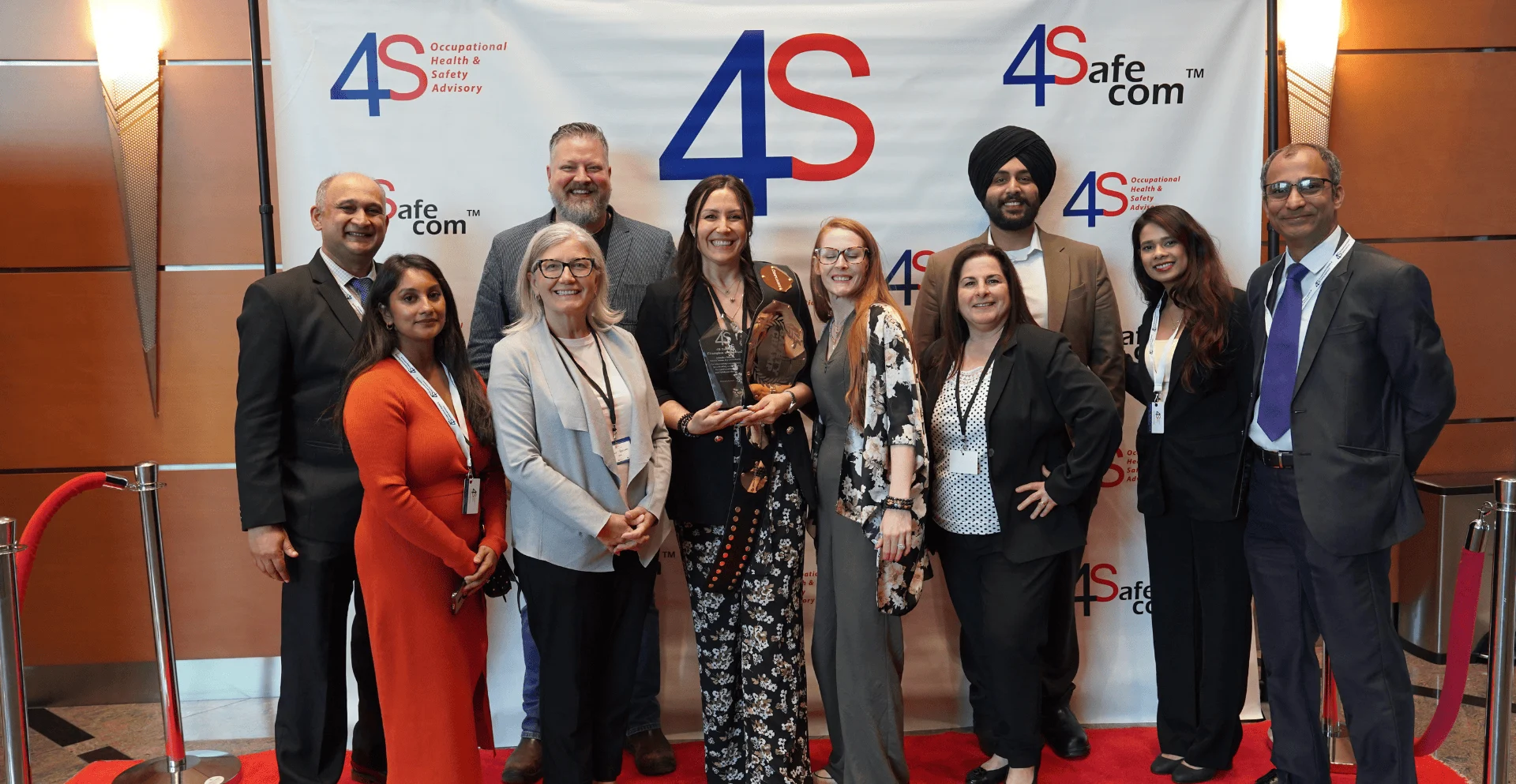
Get JHSC Certified, Fast, Flexible, and Fully Compliant
CPO-approved training that helps Ontario employers build safer, stronger workplaces.
Bundles start at $649 regular $749 limited time offer.
Safety Starts in the Off-Season
Get ahead on compliance and avoid peak-season delays with discounted winter Working at Heights training.
Browse by Category
Online Safety System

Accident and Incident Management
5 min read Accidents and incidents can happen, but their impact doesn’t have to be long-lasting. 4SafeCom’s innovative Accident/Incident Management system streamlines the entire process,

Preventative Maintenance
5 min read Stop Downtime Before It Starts. Simplify asset management, track services, streamline maintenance, and ensure compliance with 4SafeCom Preventative Maintenance Management System Reduce

New Horizons in Safety 2025 A Powerful Gathering for Safer Workplaces Across Ontario
5 min read The second edition of 4S Consulting’s flagship event, the 4S New Horizons in Safety Leadership Summit, held on May 27, 2025, was
JHSC

How to Set Up Your JHSC for Success: 7 Proven Tips to Avoid Costly Mistakes
5 min read If your Ontario Joint Health and Safety Committee exists mostly on paper, you are not alone. Many committees are formed only to

Who needs JHSC training
5 min read Joint Health and Safety Committee (JHSC) training plays a crucial role in maintaining workplace safety and compliance with Ontario’s Occupational Health and

Know Your Duties as a JHSC Member 15 Key Responsibilities
5 min read In the world of occupational health and safety, the role of a Joint Health and Safety Committee (JHSC) member is not to
COR®

COR® 2020 vs ISO 45001 in Ontario: What Businesses Need to Know in 2026
5 min read COR® 2020 vs ISO 45001 in Ontario: What Businesses Need to Know in 2026 The implementation of Bill 20 in May of

Stay in compliance when expanding with ISO 45001
5 min read ISO 45001 is transforming how Canadian businesses manage workplace safety. This blog explains how certification enhances compliance, reduces risks, and offers a

A complete COR service partner can help
5 min read It helps to get assistance from a complete COR™ service partner for getting successfully accredited. CLICK HERE for more information. COR™ is
OHS

A Conscious Shift Toward Workplace Health and Safety
5 min read For many years, workplace health and safety has been viewed primarily through the lens of compliance. Policies, procedures, regulations, audits, and training

Workplace Violence Enforcement: Lessons from a $55,000 Conviction
5 min read A recent ruling in London, Ontario highlights the critical legal requirement to provide workers with an immediate means of summoning assistance. On

4S Consulting Official Health Safety Partner for ORHMA
5 min read When running a hotel, restaurant, bar, or event venue, your team’s well-being isn’t just a box to check—it’s a cornerstone of operational
A Shared Step Toward Safer Workplaces
Ontario’s WSIB rebates and premium cuts are more than policy they’re an invitation to act.
Whether you need to optimize your safety programs, enhance employee training, or develop a safety-first culture, 4S Consulting and 4SafeCom™ can help you achieve your compliance goals.






